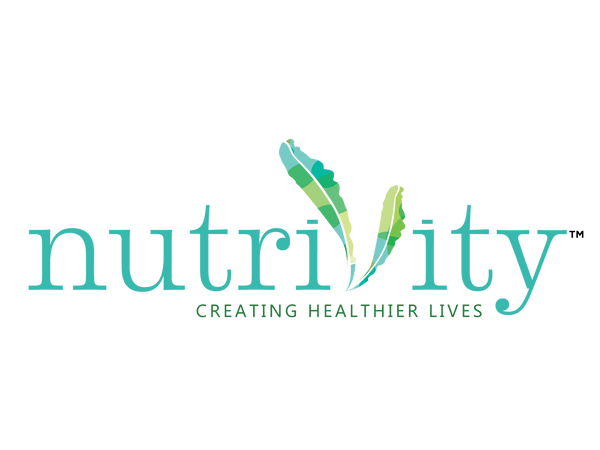
Introduction:
Briefly explain what PCOS is and its potential impact on women's health.
- Polycystic Ovary Syndrome (PCOS) is a common hormonal disorder that primarily affects people assigned female at birth. It is characterized by a combination of symptoms, including:
- Irregular Menstrual Cycles: Women with PCOS often experience irregular or absent periods, which can make it challenging to predict ovulation and conceive.
- Excess Androgens: PCOS can lead to an overproduction of androgens, which are male hormones. This can result in symptoms like acne, hirsutism (excess facial and body hair), and male-pattern baldness.
- Polycystic Ovaries: On ultrasound, the ovaries of individuals with PCOS may appear enlarged and contain small cysts, though not everyone with PCOS will have cysts.
- Insulin Resistance: Many individuals with PCOS have insulin resistance, which means their bodies have difficulty using insulin effectively. This can lead to an increased risk of type 2 diabetes.
- The potential impact of PCOS on women's health includes:
- Fertility Issues: Irregular ovulation and menstrual cycles can make it challenging to conceive, leading to infertility in some cases.
- Metabolic Concerns: PCOS is associated with an increased risk of insulin resistance, type 2 diabetes, and metabolic syndrome.
- Cardiovascular Health: Women with PCOS may be at higher risk of heart disease, high blood pressure, and unfavorable lipid profiles.
- Psychological and Emotional Well-Being: PCOS can have a significant impact on a woman's self-esteem and emotional health, particularly due to its visible symptoms like hirsutism and acne.
- Endometrial Health: Irregular or absent menstrual cycles can affect the health of the uterine lining, potentially increasing the risk of endometrial cancer.
- Early diagnosis and management of PCOS are crucial to address its potential health consequences. Treatment and lifestyle modifications can help regulate menstrual cycles, manage symptoms, reduce the risk of complications, and improve overall well-being.
Diet plays a significant role in the management of Polycystic Ovary Syndrome (PCOS) due to its impact on various aspects of the condition. Here's how diet influences PCOS:
Insulin Regulation: Many women with PCOS have insulin resistance, which means their bodies struggle to respond to insulin effectively. High insulin levels can lead to increased androgen (male hormone) production, contributing to PCOS symptoms. A diet that regulates blood sugar levels can help improve insulin sensitivity and reduce the need for the body to produce excess insulin.
Weight Management: Weight gain and obesity are common in PCOS, and they can exacerbate symptoms and increase the risk of related health conditions, such as type 2 diabetes. A balanced diet can aid in achieving and maintaining a healthy weight, which is important for PCOS management.
Hormone Balance: Diet can influence hormone levels in the body. Some foods can help reduce androgens (male hormones) and promote hormonal balance, potentially alleviating symptoms like hirsutism and acne.
Menstrual Cycle Regulation: Balanced nutrition can help regulate menstrual cycles, making it easier for women with PCOS to predict ovulation and improve their chances of conception if they are trying to conceive.
Inflammation Reduction: Chronic inflammation is common in PCOS and may worsen symptoms. An anti-inflammatory diet that includes foods like turmeric and omega-3 fatty acids can help mitigate inflammation.
Cardiovascular Health: PCOS is associated with an increased risk of heart disease. A heart-healthy diet can help reduce this risk by improving lipid profiles and managing blood pressure.
Mood and Emotional Well-Being: A well-balanced diet can positively affect mood and emotional well-being, helping individuals with PCOS manage stress and emotional challenges associated with the condition.
Overall Health: Eating a diet rich in nutrient-dense foods provides essential vitamins and minerals that support the immune system, bone health, and other aspects of overall health.
- Complex Carbohydrates:
Choose whole grains like brown rice, whole wheat roti, millets, and oats.
Limit refined carbohydrates like white rice and maida (refined wheat flour).
- Lean Proteins:
Include sources of lean protein like chicken, fish, tofu, paneer (cottage cheese), lentils, and legumes.
Protein helps stabilize blood sugar levels and supports hormonal balance.
- Healthy Fats:
Use healthy fats from sources like almonds, walnuts, flaxseeds, and olive oil.
Ghee (clarified butter) in moderation can also be a part of a healthy Indian diet.
- High-Fiber Foods:
Incorporate fiber-rich foods like fruits (especially berries, apples, and pears), vegetables (especially leafy greens and cruciferous vegetables), and legumes (such as chickpeas and black-eyed peas).
- Low-Glycemic Index Foods:
Choose foods with a low glycemic index, such as whole grains, non-starchy vegetables, and most fruits.
Control portions of high-glycemic index foods like potatoes and white rice.
- Dairy Alternatives:
Consider dairy alternatives like almond milk, soy milk, and coconut yogurt if you have dairy-related issues.
- Anti-Inflammatory Spices:
Use spices like turmeric, ginger, cinnamon, and fenugreek in your cooking, as they have anti-inflammatory properties and may help manage PCOS symptoms.
- Snacks:
Opt for healthy Indian snacks like roasted chickpeas, nuts, or homemade bhel puri made with whole-grain puffed rice and plenty of veggies.
- Herbal Teas:
Enjoy herbal teas like spearmint and cinnamon tea, which may have a positive impact on hormone balance.
- Portion Control:
Be mindful of portion sizes and try to eat smaller, frequent meals to regulate blood sugar levels.
- Stay Hydrated:
Drink plenty of water throughout the day to stay hydrated.
- Limit Sugary Sweets:
Reduce the consumption of Indian sweets (mithai) and desserts, as they are often high in sugar and unhealthy fats.
- Caffeine and Alcohol:
Limit caffeine and alcohol consumption, as these can affect hormone regulation.
- Traditional Indian Dishes:
Explore healthy Indian dishes like daal (lentil curry), sabzi (vegetable curry), and tandoori chicken or fish, which can be part of a PCOS-friendly diet.
Managing Polycystic Ovary Syndrome (PCOS) through a well-planned diet is a powerful tool for promoting hormonal balance, regulating blood sugar levels, and improving overall well-being. By making smart dietary choices such as embracing whole grains, lean proteins, healthy fats, and anti-inflammatory spices within the rich tapestry of Indian cuisine, individuals with PCOS can take positive steps towards symptom relief and long-term health. It's important to remember that personalized guidance from a healthcare professional or registered dietitian is invaluable in creating a dietary plan that aligns with your specific needs and goals. By combining a PCOS-friendly diet with regular physical activity and stress management, you can take control of your health and embrace a vibrant and fulfilling life."

